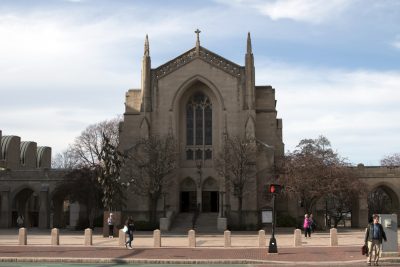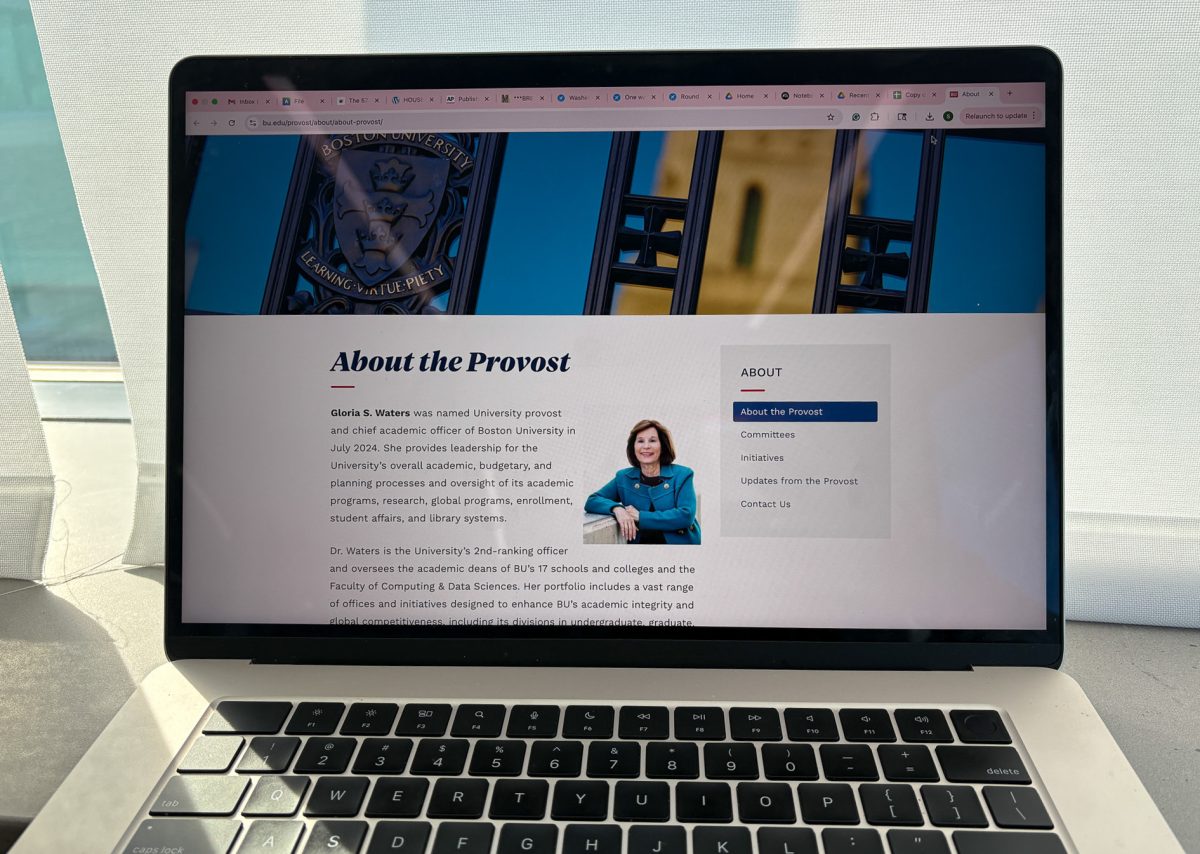
Unlike undergraduate students, who can choose to attend classes online or in person this Fall, Boston University faculty will not quite have the same choice.
BU Human Resources recently responded to workplace adjustment requests, stating that fully online teaching is being considered as a possibility only for those under “high risk.”
Provost Jean Morrison had written in a memo to faculty June 18 that those who do not meet the high-risk criteria as defined by the U.S. Centers for Disease Control are required to teach in person.
“The in-person engagement of faculty, students, and staff is a fundamental characteristic of our University,” Morrison wrote.
Those applying to teach from home were also asked to get medical notes to back up their requests.
Morrison said in an interview that faculty should be willing to engage with students via in-person learning.
“That’s why we have given the opportunity for adjustments for people who meet the criteria,” Morrison said, “but then otherwise have the expectation that faculty who have responsibilities in the classroom will meet them in the classroom.”
Morrison added that deans are currently adjusting which courses will be taught by those qualified to teach online.
“If there is a particular course in a department that really does need to be taught in person, but the professor has an adjustment and will not teach in the classroom,” Morrison said, “the dean and the academic leadership may decide to assign someone else to teach it in person.”
The Learn from Anywhere program allows students a personal decision between in-person, remote or a mixture of the two. The demand that faculty must meet certain criteria to qualify for the same right, however, has created upset.
Philosophy associate professors Daniel Star and Russell Powell, who have been campaigning for a change in this policy since early June, are asking that professors be given the same leniency as students.
“All teachers should have that right that the students also have: to be able to teach at home,” Star said. “BU has been calling the policy Learn from Anywhere. Russell Powell and I started using the phrase ‘Teach from Anywhere.’”
Having received many supportive messages from other faculty, Star said they are not alone in the Teach from Anywhere movement.
“There’s widespread discontent with the policy path that BU chose,” Star said. “It really was something that was imposed on us.”
An anonymous submission to the BU Gigs Instagram account wrote that BU administration has given faculty two restrictive options, neither of which prioritize safety.
“Our options are either to show up anyway or get replaced for the semester without pay,” the source wrote. “We of course want our students back and to teach in person but above that we want our students SAFE and we want to be protected as well.”
Morrison said the University aims to have a smooth-running semester founded on the willingness of the BU community to follow public health guidelines.
“It is our hope that as we go into the Fall and our students return and enter into, along with faculty and staff, the testing and contact tracing protocols and that as everyone follows the public health guidelines,” Morrison said, “that we’ll be able to have a healthy and really positive Fall semester.”
Morrison said it is important that the community follows safety protocols in place to ensure COVID-19 cases stay at a minimum. Those in close contact with anyone who tests positive, for example, will be asked to quarantine until they test negative.
Star said he sees two issues with BU’s safety procedures: the absence of a required quarantine and poorly ventilated classrooms. Both of these, he said, increase the risk for further spread of the virus.
“There’s a lot of anger, a lot of concern, a lot of pointed questions about ventilation, about the general policy that we’ve been criticizing,” Star said. “A lot of people feel like they’re not trusting the leadership at the moment.”































































































































Em Ess • Jul 26, 2020 at 9:23 am
I note that in the reporting on the fall semester, students are described as “concerned” and “worried,” for example, about how remote learning will impact applications for law and medical school, down the line, or not getting the full university experience. By contrast, here BU’s plan is “creating upset” among faculty, wording that makes them sound petulant, somehow. Organizing, showing up to meetings, speaking to the press, and making a systematic case about the health and safety risks of teaching in a pandemic, particularly after being pointedly left out of planning, makes faculty rightly indignant. And rightly “concerned and worried,” too.